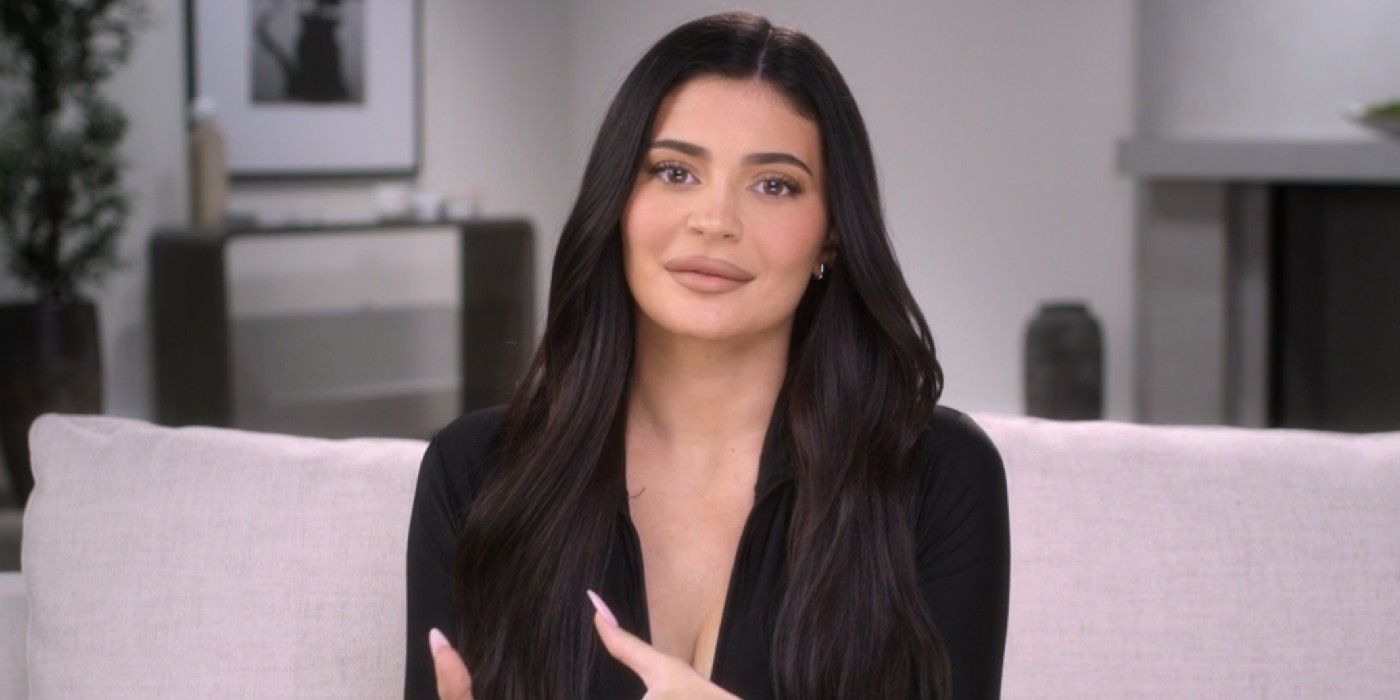Last year, Jane Schoenbrun publicly contemplated the mediated self with their astounding genre effort “I Saw the TV Glow.” The buzzy Sundance entry imagined a monster-of-the-week TV show literally connecting two realities: a fantastical narrative bridge that allowed Schoenbrun to theorize at length about the fictional worlds we love when we’re young and the real people they can help us turn into.
The economic interest in our culture’s most aspirational identity is ever-increasing. Attention is a competitive social marketplace as hell-bent on fostering self-fabulation as it is normalizing the microtransaction (and for what it’s worth, both things happen for the same basic reason). In “Eat the Night,” co-directors Caroline Poggi and Jonathan Vinel take a less literal but decidedly more cynical approach than Schoenbrun’s earlier gender-centric film — exploring instead adjacent themes of contemporary identity and spotlighting defiance in the face of oppression by class. It’s a different but nevertheless kindred coming-of-age effort with an equally tragic essence: a shaggy and flawed French crime thriller that’s sensitive and queer, quick-mutating in its psychological guts, and melancholy with jolts of oddly electric escapism.
Known for their 2018 sci-fi debut “Jessica Forever,” the reunited co-directors stay more grounded than that introduction makes their film sound in this primarily dramatic feature. Poggi and Vinel capture an ephemeral corner of modern human connection with visual uniqueness in their tonally complex second story — set against a sprawling MMO’s last weeks online before the global game’s servers go dark forever. This poetic three-hander follows the shy teenager Apolline (Lila Gueneau) on her quiet-yet-soulful quest to say a proper existential goodbye to her beloved “Darknoon” with her older brother and longtime fellow gamer, Pablo (Théo Cholbi), during one last visit to her virtual home.
Apolline’s elaborate avatar and tricked-out weaponry indicate the hundreds of hours she’s already spent in the liminal “there” — and Pablo’s equally impressive warrior suggests a sincere commitment to the fantasy he’s shared with his sister for the past decade. Still, just as much love and passion could be assigned to the twentysomething’s new romantic connection to Night (Erwan Kepoa Falé), a handsome stranger who is immediately Pablo’s partner in crime and eventually becomes his boyfriend.
 ‘Eat the Night’Altered Innocence
‘Eat the Night’Altered InnocenceMore nefarious legal schemes have been investigated by kid detectives for Disney movies than what you actually see Pablo and Night getting up to here. (Seriously, Pablo falls in love with Night while teaching him to pack tiny skull-shaped pills in a bafflingly cute couples’ montage that’s best described as “Breaking Bad” meets the pottery seduction from “Ghost.”) But the action is made mostly compelling again by the blistering speed across this film’s back half. The suddenly hurried rhythm of “Eat the Night” rams you through the rest of the drama like a pro gamer’s championship lap, delivering a cascading tonal chase that can feel more dizzying than physically spinning out.
Co-written by the directors and Guillaume Bréaudand, “Eat the Night” juxtaposes Pablo and Night’s mostly unremarkable criminal enterprise while Apolline silently counting down the days until the demise of “Darknoon,” a self-made pressure cooker that helps the script go by even faster, for good or bad. The obvious loss of innocence baked into the permanent finale of “Darknoon” is personally cataclysmic and tauntingly anticlimactic for the two siblings, but the narrative manages to balance the stakes of Pablo’s warring priorities well. It neither condescends over Apolline’s emotional yearning nor diminishes the real danger facing Pablo and Night in a gang conflict that snaps into focus just as it starts causing problems.
The near-equal weight put on those two wildly disparate emotional arcs seems weirdly fitting of a narrative that’s clearly been influenced by a utilitarian understanding of game design. What got made here doesn’t always feel human to watch, and you can get lost examining the portions of this oddly alien films that sometimes operate like a kind of bizarre half-puzzle. (On some level, can’t you swear you’ve seen “Eat the Night” front to end… before?) But as the star-crossed couple’s affection deepens — and Pablo insists again that he will make time to play “Darknoon” with Apolline later — an all-too-predictable twist of fate pulls him away from both Night and his sister.
 ‘Eat the Night’Altered Innocence
‘Eat the Night’Altered InnocenceExcluding a random scene with a pet snake and several needle drops this movie didn’t need, “Eat the Night” displays impressive intuition and restraint around its other more ambitious ideas. Forcing Night and Apolline together might seem like obvious tragedy bait from far away, but the generally sharp script isn’t so cliched as to put them on a collision course for an “Odd Couple” conflict or a saccharine and ill-fitting reunion episode. Instead, the pair’s mutual hardship surrounding a shared loved one (the specifics of which are better experienced without spoilers) outline a rocky landscape for a rarely traveled emotional road — one that’s close enough to Earth to earnestly encourage acceptance but also shocking enough to spur more of the bad behavior you only ever see rewarded in video games.
Created by Lucien Krampf and Sara Dibiza, the so-called “real” “Darknoon” made for the movie resembles something like “Fortnite” but lends itself to a more instant sense of affection than the actual battle royale sensation. Although the in-film/in-game universe shares a certain glossy resemblance to some actual console staples, the cinematic atmosphere achieved for “Eat the Night” is significantly more flattering to its young heroine, her brother, and their identity-shaping obsessions and tastes than a truly playable title would be. The beauty and authenticity baked into the “Darknoon” design further pushes back against suggestions that the film itself is anti-game and anti-media — an interpretation that might not come to anyone who bothers to watch it at first but can be reasonably justified.
 ‘Eat the Night’Altered Innocence
‘Eat the Night’Altered InnocenceEven as the metaphoric lines between the nerdy trio’s online and offline personas blur into a tortured mess — like Apolline’s semi-photorealistic face emerging over her avatar’s cartoonish grin right as she tries on some very adult cosplay in her room — the threat of a vague emotional disaster looms. When “Darknoon” ends, what ends with it? Presenting the game sequences with just enough self-assurance and confident style to avert attention from any technical limitations, the co-directors sell the digital environment as a compelling backdrop and its own theatrical presence.
The “Darknoon” experiment isn’t necessarily worth repeating in another film, but the voice-acting in scenes where Apolline, Pablo, and Night are having sincere conversations through their digital avatars while the characters are just “hanging out” makes for a stronger sense of intimacy than you’d think. Without the supernatural pathways afforded to “I Saw the TV Glow,” Poggi and Vinel lean heavily on these softer moments instead — allowing the serenity of “Darknoon” and the comparative chaos of “Eat the Night” and its tormented main characters to resonate in a loud and cacophonous discord.
The result is at once accosting and strangely affirming, narrowly saved by a strong cast of performers and moody cinematography that navigate the movie’s thinner aspects and more ambiguous moments with relative ease. A temptation to let the editing get a little too clever at times confuses some lesser subplots, and the overall muddy structure almost undercuts the ending on which “Eat the Night” ultimately hinges. But even so, the divisive film debuted as part of the Cannes Directors’ Fortnight section in 2024 — and while it’s not always exacting in its media theory, Poggi and Vinel’s latest is an unusual winning ode to the endlessly sloppy carousel of roles and games we each play in our lifetime(s).
Grade: B-
From Altered Innocence, “Eat the Night” is in limited theaters in January 2025. In New York City, from January 10 to 16 at the IFC Center — with directors Caroline Poggi and Jonathan Vinel on opening weekend. In Kansas City, Missouri, from January 10 to 16 at Screenland Armour. In Philadelphia, Pennsylvania, on January 10 at PhilaMOCA. In Cleveland, Ohio, on January 30 at Cleveland Institute of Art Cinematheque.
Want to stay up to date on IndieWire’s film reviews and critical thoughts? Subscribe here to our newly launched newsletter, In Review by David Ehrlich, in which our Chief Film Critic and Head Reviews Editor rounds up the best reviews, streaming picks, and offers some new musings, all only available to subscribers.

 4 days ago
3
4 days ago
3










 English (US) ·
English (US) ·